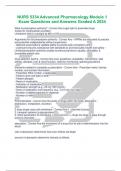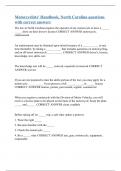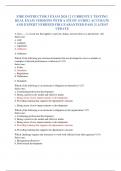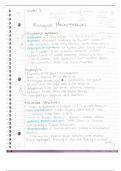Exam (elaborations)
NURS 5334 Advanced Pharmacology Module 1 Exam Questions and Answers Graded A 2024
- Institution
- University Of Texas - Arlington
What is prescriptive authority? - Correct Ans-Legal right to prescribe drugs Varies for nonphysician providers Limitations tied to oversight by MD or DO Arguments for full prescriptive authority - Correct Ans-- APRNs are educated to practice and prescribe independently without supervision - N...
[Show more]






